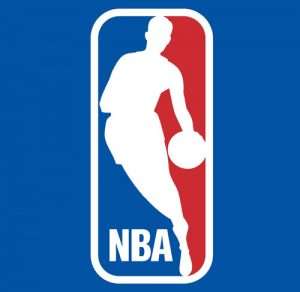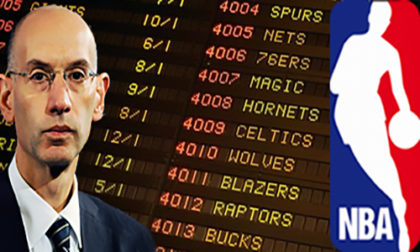NBA Not Shying Away from Sports Betting
The past week has been pretty kind to me as a sports fan. True, my Green Bay Packers lost 31-0 yesterday to cap off a lousy season, but they were eliminated from playoff contention a couple weeks ago, so I didn’t really care about that game. My Virginia Cavaliers won their first football (American) bowl game in over a decade in convincing style. And my Milwaukee Bucks end 2018 with the best record in the NBA. The Bucks also got to play on Christmas for the first time in 41 years. Christmas is to the NBA as Thanksgiving is to the NFL and I bet (pun intended) that the NBA brass were very much enjoying life during the wall-to-wall action on the 25th, considering the proliferation of legalized sports betting in the United States this year. And while other professional sports leagues have been getting onboard, the NBA has been the one to really go all in and embrace gambling.
 It started in late July, when it was announced that MGM Resorts International had become the official gaming partner of the NBA and WNBA. Before the overturning of PASPA by the Supreme Court this spring, something like that would have been unheard of, especially considering the NBA was one of the leagues that kept suing New Jersey whenever the Garden State would try to legalize sports betting.
It started in late July, when it was announced that MGM Resorts International had become the official gaming partner of the NBA and WNBA. Before the overturning of PASPA by the Supreme Court this spring, something like that would have been unheard of, especially considering the NBA was one of the leagues that kept suing New Jersey whenever the Garden State would try to legalize sports betting.
ESPN reported that the deal was for three years and at least $25 million. From the sounds of it, that payment is essentially in lieu of an “integrity fee,” which other leagues have been pushing state legislatures to include in any bills. In the agreement, the NBA will promote MGM across its different platforms (app, website, etc.), while MGM will get to use NBA highlights and logos and best of all, receive official statistics directly from the league.
Fast forward to this month, when the NBA announced its second big gaming deal, this time with The Stars Group, parent of PokerStars. As opposed to MGM, which was called the “official” gaming partner of the NBA, The Stars Group is just an “authorized” gaming partner. Like in the MGM deal, there will be cross-promotion and Stars will have access to official stats. The significance of this partnership seems to be that The Stars Group is one of the dominant online brands in the gaming industry; it has an online betting presence with its BetStars brand, which is also the brand it uses in New Jersey and will use as it expands its footprint in the United States.
Most recently, about two weeks ago, the NBA announced yet another partnership, this time with one of the two daily fantasy sports (DFS) giants, FanDuel. This was not a new partnership, but rather an expansion of an existing one in which FanDuel was already the official daily fantasy partner of the NBA and WNBA. Now FanDuel is an authorized gaming operator of the NBA, just like The Stars Group is.
“The core of our terrific partnership with FanDuel has been focused on innovation around the fan experience, and we are excited to extend it to include sports betting,” said Scott Kaufman-Ross, the NBA’s Head of Fantasy & Gaming, in a press release. “Together, we have broken new ground in the fantasy world on both the NBA and WNBA, and now with the use of our official NBA betting data, will continue to collaborate on new ways to engage our passionate fans.”
NBA Commissioner Adam Silver had actually been pushing for legalized sports betting well before anything happened with PASPA this year. Several years ago, he wrote an op-ed in The New York Times, admitting that sports betting is obviously popular and has worked in Europe:
There is an obvious appetite among sports fans for a safe and legal way to wager on professional sporting events. Mainstream media outlets regularly publish sports betting lines and point spreads. Voters in New Jersey overwhelmingly voiced their support for legal sports betting in a 2011 referendum. Gov. Chris Christie of New Jersey recently signed a bill authorizing sports betting at local casinos and horse racetracks, a law the N.B.A. and other leagues have opposed — and a federal court has blocked — because it violates PASPA.
Outside of the United States, sports betting and other forms of gambling are popular, widely legal and subject to regulation. In England, for example, a sports bet can be placed on a smartphone, at a stadium kiosk or even using a television remote control.
About thirteen months ago, when the writing was on the wall that PASPA would be overturned, Silver went on ESPN Radio, again saying that sports betting should be legalized and regulated, though he prefers it to be at the federal level, rather than state-by-state.
“….it’s not to me an issue of whether I am ‘pro’ or ‘con’ sports betting. We know now that it goes on, largely underground, hundreds of billions of dollars are bet every year just in the US on sports betting.”



















COMMENTS